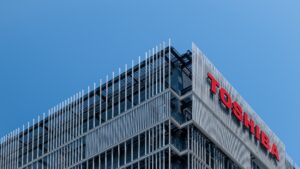
UK Expected to Avoid Recession, Says EY Item Club
The UK economy is on course to avoid a recession this year, despite the impact of the Bank of England’s interest rate hikes, according to a new forecast by the EY Item Club (EY).
The independent economic think tank, which uses the Treasury’s model to make its predictions, said that the UK would grow by 1.3% in 2023, slightly higher than its previous estimate of 1.2%.
EY attributed the improved outlook to strong wage growth, which has outpaced inflation and boosted consumer spending. It also said that the interest rate increases, which have raised the cost of borrowing for households and businesses, were likely to have already peaked at 0.75%.
“A likely end to rate increases at the Monetary Policy Committee’s (MPC) last meeting, combined with falling inflation and a return to real pay growth, should keep the economy from falling into recession,” said Howard Archer, chief economic adviser to EY.
However, the EY warned that the UK’s economic performance was still “lacklustre” compared to its international peers, and that Brexit uncertainty remained a major risk factor. It said that a no-deal scenario could lead to a sharp contraction in output and a spike in inflation.
EY also lowered its growth forecast for 2024 from 1.5% to 1.4%, citing the drag from higher interest rates and lower public spending as the government tries to reduce its budget deficit.
EYs projections are more optimistic than those of the Bank of England, which expects the UK economy to grow by 1.2% in 2023 and 1.5% in 2024. The Bank of England has also signalled that it may raise interest rates further if inflation pressures persist.
The Office for Budget Responsibility (OBR), the government’s official forecaster, will publish its latest economic and fiscal outlook on Wednesday, alongside the Chancellor’s Budget statement. The OBR is expected to revise up its growth forecast for 2023 from 1.1% to 1.3%, but lower its forecast for 2024 from 1.6% to 1.4%.

